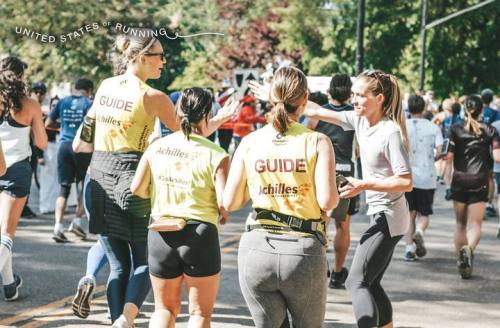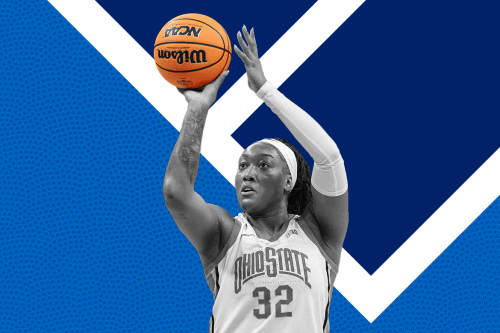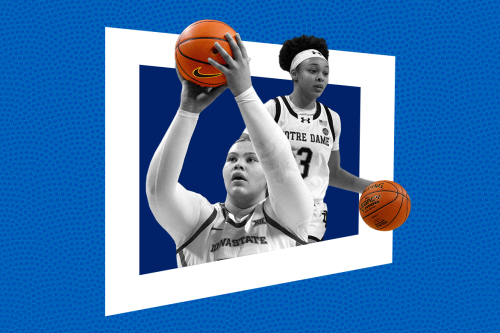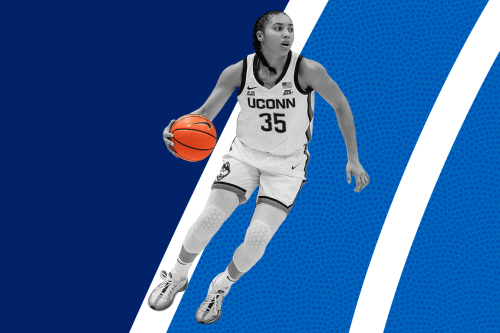Imagine spending the better part of the calendar year training for a marathon. Early mornings, or possibly late nights, logging double-digit miles, feeling so depleted from long runs and speed workouts that all you want to do is nap and eat. Perhaps you battle adverse weather conditions, dodge potholes and are working tirelessly on your rhythm of consuming nutrition as you run.
Now, imagine you are adhering to this rigorous training block and are blind, have severely limited vision, or a disability that prevents you from being able to run solo. Picture not being able to see the ground, nor have peripheral vision, nor make out any object further than 50 feet in front of you. My friend Melissa is a visually impaired athlete who cannot see contrast on the road so with my help, as her guide, it is my duty to make sure she runs safely and crosses the finish line without injury or obstacle. The first weekend in November, she is set to run her fourth New York City Marathon, and I will be right by her side for the experience—cueing her for all 26.2 miles.
Melissa and I met four years ago at an Achilles—an organization that pairs able-bodied athletes with disabled athletes to act as guides through races—practice on a chilly Saturday morning in Central Park and clicked immediately. We bonded over our shared love of fashion, running, and food—and we started running together from that day on. As her guide, I run alongside her, calling out potholes, “manholes,” bumps, gradient changes and descents, while ensuring she is hydrated and taking in enough nutrition for the day’s given mileage. Melissa and I have had the great privilege of running countless half-marathons, 10Ks, full marathons, and one Ultra 50K as a team (“Team Mel” as we’ve dubbed it).
If you’re wondering what it’s like, guiding is not a casual duty: It’s a massive responsibility and also an immense honor. Serving as someone’s eyes, ears, and protector on the road means that the race is 100 percent not about you. It is about the athlete, it is their race, and you are merely there to make sure all goes off without a hitch. I could write a whole novel of the dialogue rotating in my head as I guide. The internal conversations are constant reminders to focus and pay attention to each and every detail on the road.
This fall we will conquer 26.2 miles through the five boroughs in NYC. Now, you must be wondering how this all works logistically. Does she run with a tether, a waist leash? Every disability is different. They all require a varying amount of assistance and specific care. With Melissa direct on my shoulder, and within a handheld reach, I will call out obstacles along the way, reach for water at the aid station to give her, guard her as others speed by, and hold her hand over the finish line so she can safely glide over the last of the timing mats.
Gold Medal Couple Tara Davis-Woodhall and Hunter Woodhall Talk Marriage, Motivation, and Their Next Chapter With Nike

Coach Kara Lawson Wants You to ‘Handle Hard Better’—and Here Are 3 Ways to Do Just That
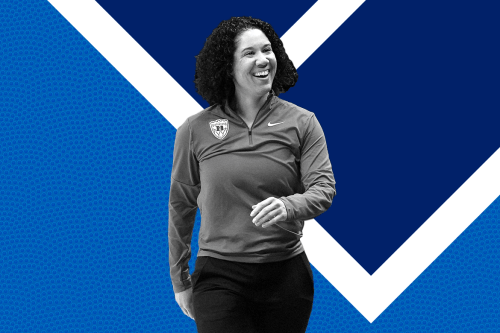
JuJu Watkins Leaves March Madness With ACL Tear—and This Knee Injury Is More Common Than You Think
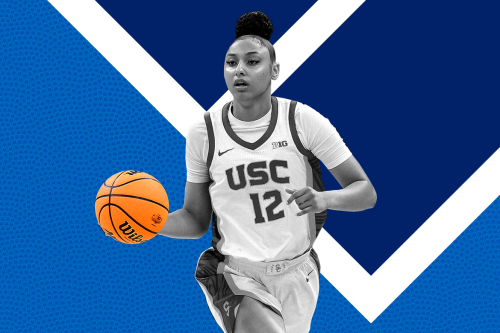
While I have put in the time and effort just as much as Melissa, this is not my race—it is hers
We’ve trained for this. We’ve lost sleep for this and we’ve laughed, cried and sped through our frustrations along the way. We take training very seriously, incorporating long weekend runs with shorter weekly jogs through the park and speed work. It’s imperative for a guide to train with their athlete before any race, in particular to ones of such magnitude as a marathon. Melissa and I have built a profound trust and an unbreakable bond throughout the process. While I have put in the time and effort just as much as Melissa, this is not my race—it is hers. I am her bodyguard, safety net, cheerleader, and nutritionist on the course. So, what does it take to be a strong guide? Tenacity, consistency, patience, awareness, compassion, vulnerability, and focus. These are traits I like to constantly remind myself I should embody so that I can evolve as a guide.
On November 3, our alarms will sound at 4 a.m. and we will immediately head to the coffee machine to begin brewing our pre-race roast. After we have loaded up on oatmeal and pinned our bibs to our Achilles shirts, it’s off to Staten Island to coral up. Team Mel will have a pep talk, where I’ll reminder her to race slow and steady.
Once the gun goes off Melissa and I will start the morning’s journey, steadily pacing to the sound of our own breath and the roaring cheers from the crowd. I’ll be her eyes on the course over four or so hours. Crossing the finish line will be the best reward as I will witness a woman accomplish her eighth marathon, a woman who is blind but doesn’t let anything stand in her way. Now that is inspiring.
If you’re inspired to run a marathon, here’s why a cardiologist would have your back and this is how to get race-ready in 20 weeks flat.
Sign Up for Our Daily Newsletter
Get all the latest in wellness, trends, food, fitness, beauty, and more delivered right to your inbox.
Got it, you've been added to our email list.
